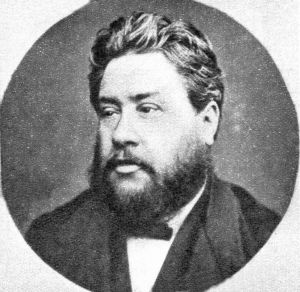Did CH Spurgeon believe in evolution?
Did Spurgeon believe in evolution? Not a bit – but the answer's more complicated than it might seem.
Darwin's famous On the Origin of Species was published in 1859 and provided, for the first time, solid scientific evidence for evolution – though the idea had already been around for some time. Much more common, however, supported by the work of geologists such as Charles Lyell (1797-1875), was the idea that far from the world being only a few thousand years old, as Archbishop Ussher had suggested based on biblical chronology and some complicated mathematics, it was many millions of years old.

Spurgeon had no problem with that. In a sermon on June 17, 1855 – just before Darwin's book was published – he said: "We do not know how remote the period of the creation of this globe may be – certainly many millions of years before the time of Adam. Our planet has passed through various stages of existence, and different kinds of creatures have lived on its surface, all of which have been fashioned by God."
These creatures included the dinosaurs, whom Spurgeon didn't try to squeeze into recorded history but accepted lived long before Adam.
In a sermon preached on September 2, 1855 he said: "Can any man tell me when the beginning was? Years ago we thought the beginning of this world was when Adam came upon it. But we have discovered that thousands of years before that God was preparing chaotic matter to make it a fit abode for man, putting races of creatures upon it who might die and leave behind the marks of His handiwork and marvelous skill before He tried His hand on man."
Spurgeon was very comfortable with the idea of an 'old earth' in which different races of creatures lived and died out before recorded history began. He didn't think the first chapters of Genesis had to be interpreted literally, in the way many creationists do today.
However, Darwin's book came as too much of a theological shock, for two reasons. First, the theory of evolution very quickly came adrift from its scientific moorings and began to be used as a metaphor – and then as a spurious proof – for human progress generally. Spurgeon was vehemently opposed to any idea that human beings could evolve into better people. They needed to be saved by grace.
So, he wrote: "According to this evolution doctrine, as applied to theology, the new birth is a development of that which is naturally within the heart. I hope we may be spared such births and evolutions!... God save us from all development of the sin which dwells in man! Philosophically the dogma of evolution is a dream, a theory without a vestige of proof!"
However, he was also concerned about the implications of Darwin's theory for the authority of the Bible. Spurgeon was not a fundamentalist, in the sense in which the term has come to be used today, but he could not regard stories of the creation of Adam and Eve as anything other than literally true. So as well as genuine intellectual reservations about the theory, which were shared by many others at the time – and it would be many years before the discovery of DNA provided an explanation of the actual mechanism of evolutionary change – he saw evolution as a contradiction of scripture. As Paul Southern says in a Liberty University paper: "Spurgeon, influenced by his preacher parents and grandfather and the literature, mostly Puritan, of the day adopted a view that the authority of scripture was very real, that scripture was not to be altered and that the creation story was wholly authoritative for the simple reason scripture says so."
In a famous lecture in his Tabernacle on October 1, 1861, on The Gorilla and the Land he Inhabits he mocked the idea that one species could give rise to another. He had a stuffed gorilla on stage and said, according to reports at the time: "There is Mr Darwin, who at once is prepared to prove that our great-grandfather's grandfather's father – keep on for about a millennium or two – was a guinea-pig, and that we ourselves originally descended from oysters, or seaweeds, or starfishes...but I, for my own part, believe there is a great gulf fixed between us, so that they who would pass from us to you (again turning to the gorilla) cannot; neither can they come to us who would pass from thence. At the same time, I do not wish to hold an argument with the philosopher who thinks himself related to a gorilla; I do not care to claim the honour myself, but anyone else is perfectly welcome to it."
He continued: "Seriously let us see to what depths men will descend in order to cast a slur upon the Book of God. It is too hard a thing to believe that God made man in his own image..."
Spurgeon was far from alone in his opposition to evolution, though many clergy and theologians at the time – like most Christians today – did not regard it as a threat to the Bible's authority. His reaction should be seen in the context of a developing scientific understanding of the world, which in the mid 19th century was only just beginning. Some of his concerns no longer weigh with most people – most Christians today are perfectly willing to accept that they share a common ancestor with other life forms – and the age of the earth is well established, as Spurgeon himself accepted. However, others remain valid today; the idea that the principle of the 'survival of the fittest' can be applied to human society, for example, has led to great wrongs being committed through the false science of eugenics.











